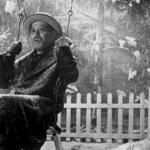Review of The Wolf of Wall Street, Directed by Martin Scorsese
Martin Scorsese’s newest release, The Wolf of Wall Street (2013), is a chilling tale of amorality gone wild that has more to say than drugs, sex, and money. The movie is based on the eponymous memoir of Jordan Belfort (played by Leonardo DiCaprio), who was indicted for securities fraud and money laundering in 1998. The movie opens in 1987 when Belfort joins the brokerage L.F. Rothschild and cold calls hundreds a day to solicit investments. Unfortunately for Belfort, the 1987 stock market crash shutters the firm, but not before one of his supervisors (Matthew McConaughey) teaches him that the successful life is acquired through masturbation, drugs, and prostitutes. Welcome to Wall Street, or at least the side of the street the wolf prowled.
With large brokerage firms not hiring, Belfort finds a job selling penny stocks to gullible middle-to-low income individuals by lying about the value of companies and dangling the hope of a meteoric rise to riches. Belfort reaped 50 percent commission for these sales and soon started amassing his fortune, culled from the hard-earned wages of others. Greed begets greed. Belfort recruited Donnie Azoff (Jonah Hill) and others to start their own brokerage–Stratton Oakmont–and soon thereafter started targeting the “whales,” the ones with deep pockets. 
Before long Stratton Oakmont is raking in large profits and they move to Wall Street (although in real life it was Long Island). Then the life of disgusting excess begins. Prostitutes are brought to the office. A female employee is given $10,000 to shave her head and her financial reward is dedicated to getting breast implants. They hire midgets to throw at velcro targets. Alcohol is used to wash down Quaaludes, a sedative drug originally designed for housewives, but which gave a high if you forced yourself to stay awake over 15 minutes.
Reviewing The Wolf of Wall Street for Forbes, Mark Hughes points out the fact that the barefaced presentation of sex and drugs in the movie are not novel in modern cinema. Perhaps the extended duration of such scenes is noteworthy. Other critics’ reactions to the film have focused on the film’s hedonism, nudity, and shocking vulgarity, whereas the financial fraud, the fleecing of innocent investors, failed to elicit much outrage. In a post-2008 America, “…we are accustomed to exploitation and abuse.” Hughes is onto something here, but I think we can take the indictment a couple steps further.
In a farewell speech to his employees, Belfort proclaims, “Stratton Oakmont is America.” What he meant was, the firm was a place where have-nothings could make it rich. But there’s some intentional irony here after we’ve seen scenes upon scenes of their extravagant lifestyles compared to the reality of a have-nothing life. Belfort goes on to talk about never hanging up the phone with potential investors until they get the investment money–until they get what they deserve. The American Dream has evolved from the land of opportunity to the land of entitlement.
Neither Belfort, nor Azoff, nor his other original partners were particularly smart. In fact, Jordan Belfort originally writes scripted conversations for them to play on fantasies of individuals looking for a get-rich-quick scheme. Belfort and company didn’t work hard. They illegally held stocks in a company that Stratton Oakmont was taking public and earned indecent amounts of money hourly. Simply put, they stole money and felt no remorse; and even felt that they deserved it.
The film’s commentary on money is the most cynical and possibly most elegant in cinema. Belfort tells us that out of all the drugs, money is the best. In fact, he makes the laughable claim that money makes us better people–something that we may actually believe more than we’d like to admit. Other great one liners include, “There is no nobility in poverty,” and “I want you to deal with your problems by making more money.” Money is the panacea of all ills. At some point, Belfort seems to forget that money is a means and begins measuring his own value and worth using dollar signs.
Despite all the talk about money, the obsession with money and its attendant pleasures is not the heart of The Wolf of Wall Street. Nor is it our desensitization to financial fraud and the lives of the one percent. The movie sings to the tune of America’s new dream: the benefits of wealth without the work. Spending beyond our means has become part of the national rhythm of life. This issue dwells in the 2008 mortgage crisis. It dwells in the debt crisis.
By the end of The Wolf of Wall Street, we are left without any revelation or any sign of Belfort being repentant. He receives a mere four-year prison sentence and, once released, is a successful motivational speaker. The punishment is remarkably light compared to the crime and, more unsettling, Belfort is not sorry for what he has done.
Those unfamiliar with the jazz music scene will not recognize the first song in the film, but it has profound meaning for the rest of the movie. It is exactly what the The Wolf of Wall Street should leave the audience crying: “Mercy, Mercy, Mercy!”












